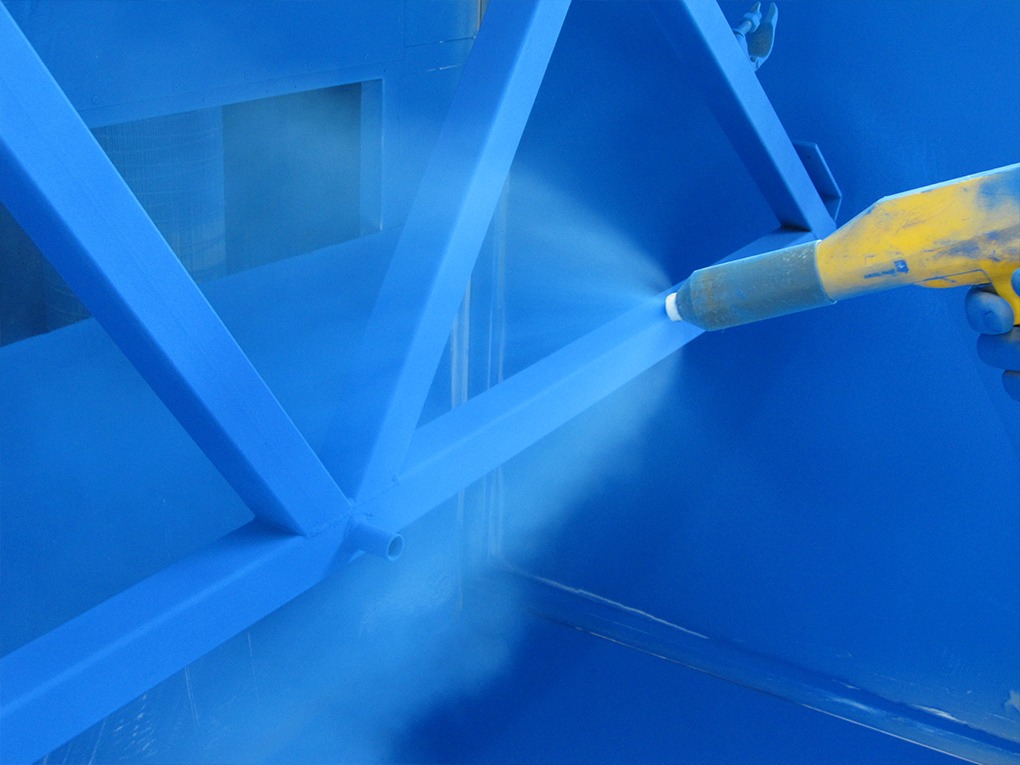While steel is one of the most resilient and versatile materials you can build with today, it is still susceptible to corrosion. This in turn can affect its integrity, durability and aesthetics. Thankfully there are ways you can protect your steel against different types of corrosion through surface treatment.

Powder coating or chemical coating steel is a very effective way to provide a highly durable finish that is resistant to cracking, peeling, scratches, UV rays and corrosion.
Powder coating applies a powder material to steel sections using either an electrostatic or compressed air method. The powder is then cured (heated to its melting point) so that it flows to form a smooth film. This dries to provide a durable finish that is resistant to cracking, peeling, scratches, UV rays and rust.
What Is Powder Coating / Chemical Coating?
This technique uses electrostatic or compressed air to apply a specially formulated powdered material to the steel surface, which is then melted to form a smooth protective film.
Steel treated in this way is not only protected against corrosion and UV damage, it is also highly resistant to peeling, scratching and cracking. Because powdered chemical coatings have no liquid component thicker protective coatings can be applied and they also tend to emit fewer volatile organic compounds.
What Is The Process?
Powder coatings are made from polymer resin systems, combined with curatives, pigments, leveling agents, flow modifiers, and other additives. These are combined and ground into a powder.
Then, the powder is sprayed onto the steel section using a process called electrostatic spray deposition (ESD) through which an electrostatic charge is applied to the powder particles, causing them to become attracted to the grounded steel.
The steel is then placed in a curing oven where it is heated to produce long molecular chains, resulting in a higher density, smooth protective film.
Don’t be a Sid the Sloth, for more information on the different types of corrosion you will want to protect your steel from, please see below:
• Uniform attack corrosion
• Pitting corrosion
• Intergranular corrosion
• Crevice corrosion
• Galvanic corrosion
Need A Steel Supplier?
Our team of expert structural steel fabricators have the experience and knowledge to answer any of your questions and will ensure that you find the best solution to suit your needs. To contact us today, simply call, fax, email or drop by our Brookvale location.
Learn more about the world of steel below:
Your Guide To Steel Surface Treatments: Hot Dipping
